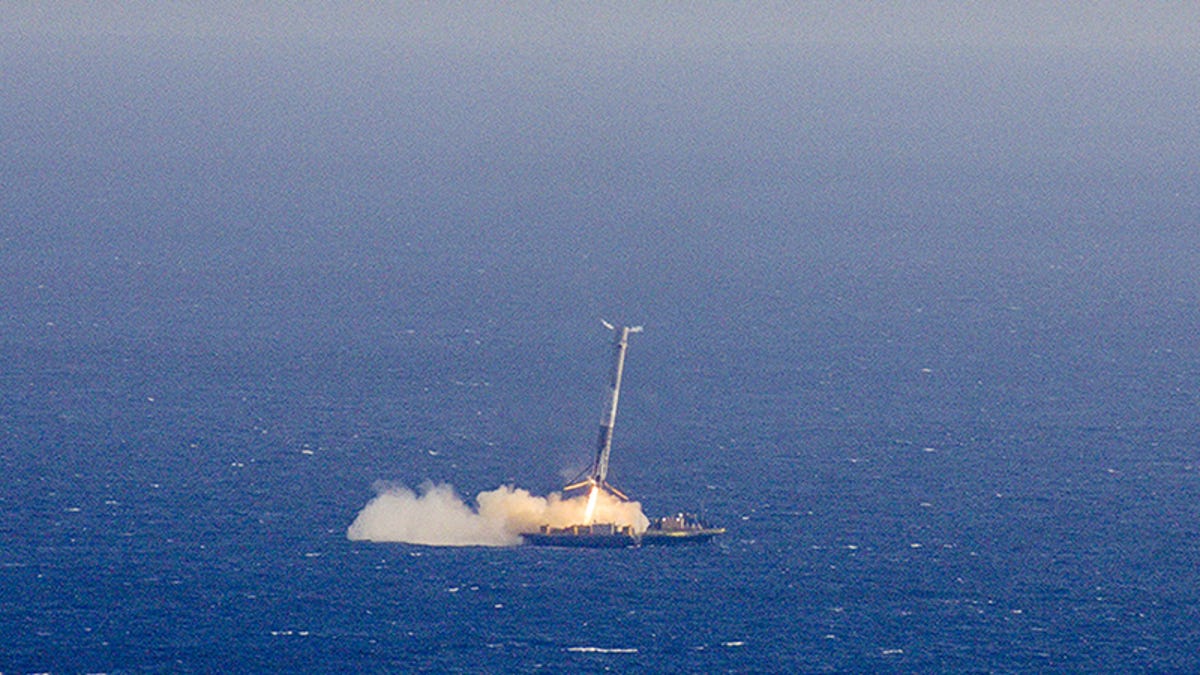SpaceX rocket fails attempted barge landing for fourth time
Elon Musk's SpaceX really wants to be able to launch rockets for space missions and land them on platforms at sea, but so far none of the trial landings has stuck.
The saying is "space is hard," and it seems that's especially true when you try to end a trip to space by gently landing your rocket on a robotic barge at sea. But hard has never deterred commercial space-flight company SpaceX, which made a fourth attempt at the historic landing off the coast of Florida on Friday.
And once again the rocket failed to land softly enough and stay standing up, so it won't be able to fly another day.
Before the attempt, the SpaceX Falcon 9 rocket successfully delivered SES-9, a commercial communications satellite, into orbit before heading back to the drone barge named "Of Course I Still Love You" some 600 kilometers off the coast.
As the rocket's glowing thrusters became visible in a live video feed shot from the platform Friday evening, the force of the rocket's landing caused the feed to cut out.
About an hour later came confirmation via Twitter that it had been a hard (and therefore unsuccessful) landing attempt.
The first three attempts at making the experimental landing on the drone barge -- including the most recent in January -- all ended with spectacular explosions, as the rocket either came in for a hard landing or tipped over on the landing platform and then blew up. SpaceX and founder Elon Musk cautioned prior to this launch that "a successful landing is not expected" (PDF), due to the mission's "unique" profile, which involves deploying a satellite payload at a very high altitude.
As long as humans have been using booster rockets to send satellites and other craft into space, those boosters have typically ended up on the bottom of the ocean somewhere after just a single use. A handful of companies, including SpaceX, are looking to compete by developing reusable rockets to lower the cost of getting to space.
In December, SpaceX successfully landed one of its Falcon 9 rockets on land for the first time at Cape Canaveral after a successful satellite deployment mission, but some missions require that the recovery of the rocket be done at sea.
Jeff Bezos' Blue Origin actually beat SpaceX to the punch in November, successfully landing its New Shepherd rocket after the craft had been launched to the edge of space, though its mission seems to have been mostly for marketing purposes and less difficult than what Musk's company is attempting.


